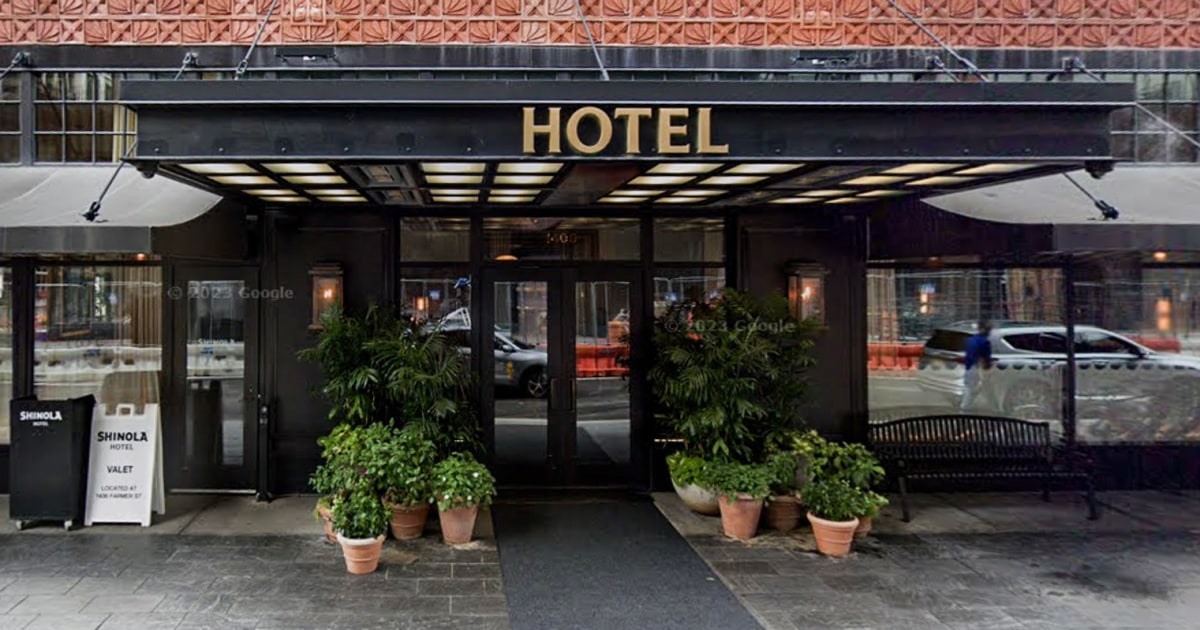Jobs
A Black jobseeker said he used a white-sounding name on his résumé and got a job interview. Now he’s suing.

A Black man has filed a discrimination lawsuit against a boutique hotel in Detroit after he said his multiple job applications went ignored — until he changed the name on his résumé to a white-sounding name.
Dwight Jackson said that he applied repeatedly for positions at the Shinola Hotel under his given name between January 2024 and April 2024, according to a legal complaint filed on July 3 in the Third Judicial Circuit of Michigan. When he changed the name on his otherwise identical résumé to “John Jebrowski,” according to the suit, Jackson said he was called in for an interview that same week.
According to Jackson’s attorney, Jonathan Marko, Jackson’s work experience includes reception jobs at comparable hotels like the Westin Book Cadillac Detroit.
“It made him question, ‘How many other jobs along the way have I not been given an opportunity for because of the color of my skin,’ and he’s questioning himself, he’s questioning his self worth,” Marko said to NBC News.
When Jackson later applied twice for similar front desk positions at the hotel, according to the lawsuit, and was contacted for an interview under “a more readily apparent Caucasian name,” John Jebrowski, he concluded that the hotel’s “consideration of candidates was based on the racial appearance of the applicant’s name,” according to the lawsuit. The complaint alleges the Shinola Hotel violated the Michigan Elliott Larsen Civil Rights Act on the basis of disparate treatment and retaliation. The policy, established in 1977, secured opportunities to obtain employment, housing, public services and education without discrimination.
Hotels Magazine recently called the Shinola Hotel “a centerpiece of the Detroit revival.” Sage Hospitality Group, the operating partner of the Shinola Hotel, said in a statement to NBC News that the company does not tolerate discrimination of any kind.
“The preliminary findings of our internal investigation relating to this claim have revealed significant inconsistencies with the plaintiff’s allegations,” the company said in a statement. “It is unfortunate that the plaintiff’s counsel has chosen to take these unsubstantiated claims to the media before proper due diligence has been completed.”
Marko, Jackson’s attorney, said his client revealed his true identity at the interview, confronting the interviewer by saying that he believed he was not given an interview as “Dwight Jackson” due to name discrimination.
“Shortly after Jackson underwent the interview process, he was informed that he was no longer a viable candidate for the position,” the lawsuit states.
“Upon information and belief, Jackson’s applications were disregarded by Defendant due to discrimination of his race,” the complaint reads. The complaint says that Jackson is seeking damages for stress, humiliation, economic and emotional damages.
Marko also said that his client’s primary goal is to raise awareness about name discrimination and prevent it from happening to others. “He definitely doesn’t want it to happen at Shinola, he doesn’t want it to happen in his hometown of Detroit. But if he can make a difference to just other people across the United States, that’s what he wants to do,” Marko said.
Studies have pointed to the prevalence of name-based discrimination by companies in the résumé reviewing process. In April of this year, the National Bureau of Economic Research issued “A Discrimination Report Card” of nearly 100 U.S. companies. By sending fake resumes with equal qualifications and different names, researchers found that employers contacted presumed white candidates 9.5% more than presumed Black candidates.
For more from NBC BLK, sign up for our weekly newsletter.








